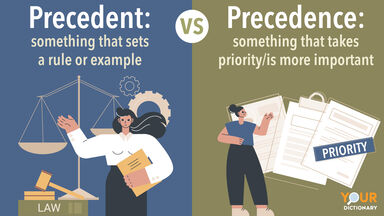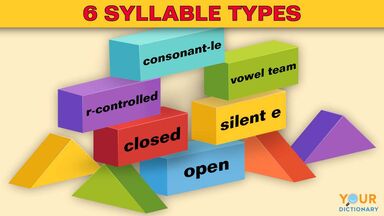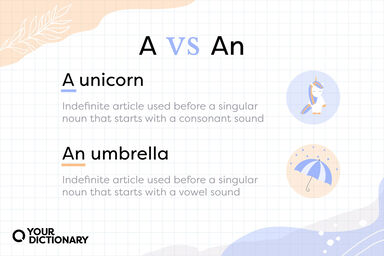Precedent Definition
prĕsĭ-dənt
precedents
noun
precedents
An act, statement, legal decision, case, etc. that may serve as an example, reason, or justification for a later one.
Webster's New World
A judicial decision that is binding on other equal or lower courts in the same jurisdiction as to its conclusion on a point of law, and may also be persuasive to courts in other jurisdictions, in subsequent cases involving sufficiently similar facts.
American Heritage
A practice based upon earlier precedents.
Webster's New World
The previous version.
Wiktionary
adjective
That precedes; preceding.
Webster's New World
Something that came before, hence preceded the event currently in question, such as a previously decided case. It may serve as a model for the interpretation of a law, or disposition as a case.
Webster's New World Law
verb
(law) To provide precedents for.
Wiktionary
(law) To be a precedent for.
Wiktionary
Other Word Forms of Precedent
Noun
Singular:
precedentPlural:
precedentsOrigin of Precedent
-
Middle English from Old French from Latin praecēdēns praecēdent- present participle of praecēdere to go before precede
From American Heritage Dictionary of the English Language, 5th Edition
-
From Middle English, from Old French, from Latin praecÄ“dÄ“ns, present participle of praecÄ“dere (“to precede"); See precede.
From Wiktionary
Related Articles
Find Similar Words
Find similar words to precedent using the buttons below.





